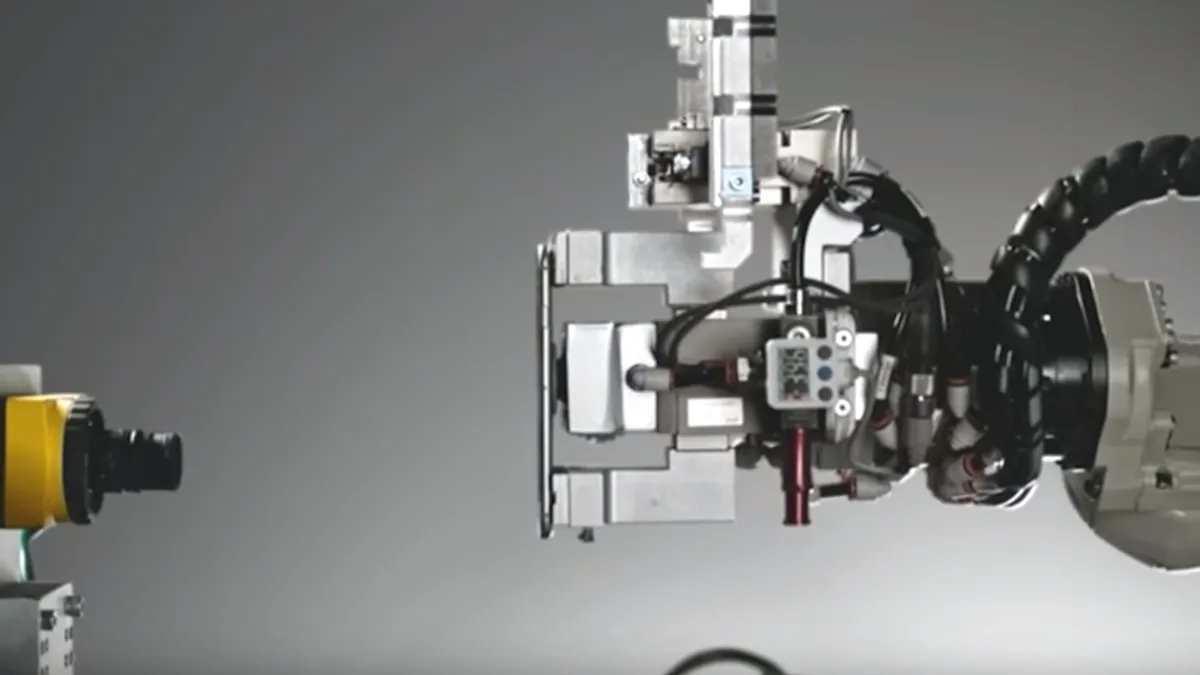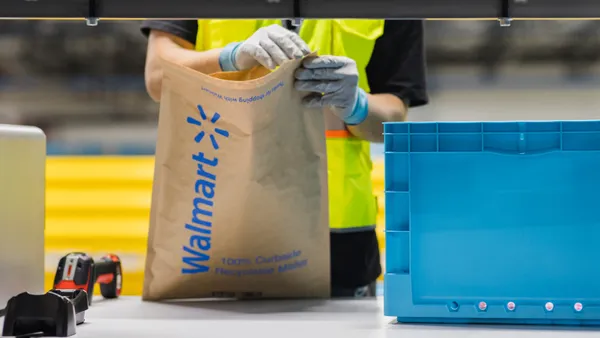Dive Brief:
-
Apple announced this week the development of a robot named "Liam," which has 29 robotic arms that disassembles returned and damaged iPhones. Liam removes components a few at a time, rendering them easy to recycle, in a way that materials will not be mixed with copper so they can be sold to recyclers looking for specific commodities, according to Mashable.
- The assembly line system, which is described as a better alternative to a shredder, begins with a robot that removes iPhone screens before sending the phone to battery removal via the conveyor belt. Liam’s multiple free-standing robotic arms assist with drills, screwdrivers, and other tools to take the phones apart. The screws are pulled into small tubes and dispensed in containers, and SIM card slots go into a bucket. The system also alerts for problems, like if a battery's temperature is too high.
- Liam can complete an iPhone disassembly process every 11 seconds, and can successfully remove 97% of components from each iPhone.
Dive Insight:
Apple has made a push to brand itself as having a focus on sustainability, and the numbers speak for the corporation. Apple collected more than 40,000 tons of e-waste in 2014 and recycles 85% of devices that have reached seven years of life — the industry standard is 70%, by weight.
Liam is the company's newest initiative to ensure that the tonnage of devices the company cranks out does not simply end up in landfills, but that salvageable parts are removed, separated, and reused. Automation was key, the company figured, to finding the safest, quickest way to accomplish this.
While Liam is still in developmental stages, Apple thinks of it as a new concept in recycling — a more efficient alternative to shredding to break down and recycle valuable materials into brand new products.
"We need more R&D if we are going to realize the idea of a circular economy in electronics," Apple's Vice President of Environment, Policy and Social Initiatives Lisa Jackson told Reuters. According to Apple, a second "Liam" is being installed in Europe.
Liam currently dissembles iPhone 6 devices but may expand to other iOS models, according to Mashable.













